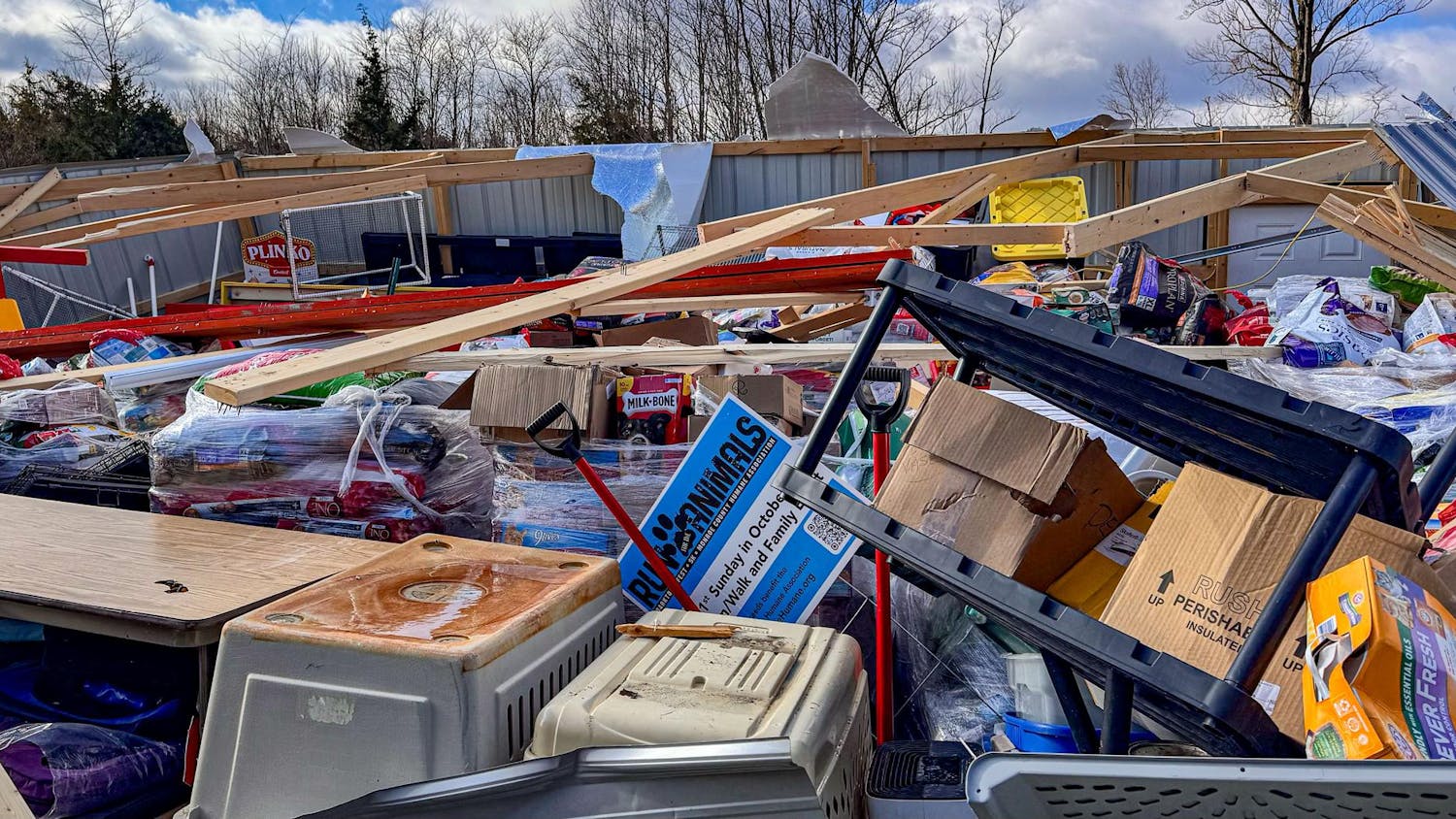Members of the Black Graduate Student Association and the National Association of Black Journalists gathered Tuesday for a mass meeting to discuss policing and write letters to Ramsey Orta, the man behind the camera in the Eric Garner video.
Eric Garner was killed after being held to the ground by a police officer in New York City.
“I felt the need to write letters to him to let him know someone still cares,” said Taylor Hurt, president of the NABJ.
Kevin Lewis, community service chair of the BGSA, began the night with a history of policing in the United States.
Slavery lasted from about 1620 to about 1865, Lewis said. Slave patrols began in 1704. These groups monitored and enforced discipline on slaves.
In some states, slaves were required to provide verification if they were found away from their homes, Lewis said.
“White people were very scared of black people,” Lewis said. “They needed a way to control them and make sure they weren’t going to revolt.”
Lewis compared this historical practice to modern day racial profiling by police officers.
“That’s the same thing that happened with the slave patrols,” Lewis said. “Some people may view this as far-fetched, but I’m seeing the ways in which history repeats.”
Lewis then discussed the Reconstruction and Jim Crow periods, which spanned from 1865 to 1964. He said while black people had legal rights, they were still discriminated against.
“We were promised our 40 acres and mule, and we did not get that,” Lewis said. “Our bodies were still being criminalized because we were still viewed as property.”
Lewis said this ideology and discrimination was manifested as the Ku Klux Klan.
Hurt talked about the Black Panthers and the ways members of the group were targeted, including fabricating evidence and even assassination.
When discussing modern day policing, Hurt asked, “Do black people need a completely separate police force, and what does that look like?”
The group had mixed answers. Some believed it would be beneficial, and others thought it might not be. Junior Keenan Rhodes said he believed having a police force is not a necessity.
“We live in a society that bases a lot of things off individual success,” junior Keenan Rhodes said. “Black collective thought has been destroyed by American individualistic society.”
After the history discussion, Hurt briefly talked about video rights. Filming the police is legal, Hurt said.
On private property, it depends on the property owner’s wishes.
In a public space, it is legal to record police officers as long as it is not interfering with their work. Police officers are not allowed to ask to view or confiscate a video without a warrant and deleting a video is out of the question.
Hurt brought up Garner and the man, Orta, who filmed his murder. After he shared the video, Orta was arrested for several felony charges, and Lewis said he believes Orta and his family were targeted.
“You would think that some people view him as like a citizen journalist for his actions,” Lewis said. “You would think he would be awarded for bringing light to these things.”
Lewis passed around blank sheets of paper to the group for them to write letters to Orta, who is currently serving four years in prison.
“There are people out here who are thinking about him and who empathize,” Hurt said.




